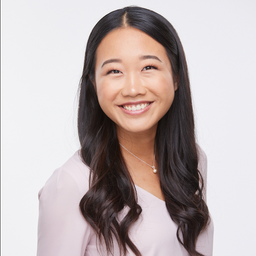Pathway to Diagnosis and Accessibility of Genetics Testing for Patients with Inherited Retinal Dystrophies in Ophthalmologist-Led Clinical Model
Authors: Grace S. Yin1, Zhuo Shao2, Hanna Faghfoury3, Brian G. Ballios4. 1Queen’s University School of Medicine, Queen’s University, ON, Canada, 2Genetics Program, North York General Hospital, University of Toronto, ON, Canada, 3Fred a Litwin and Family Center in Genetic Medicine, Department of Medicine, University of Toronto, ON, Canada, 4Department of Ophthalmology and Vision Science, University of Toronto, ON, Canada.
Author Disclosures: G.S. Yin: Any direct financial payments including receipt of honoraria; Name of for-profit or not-for-profit organization(s); The Cambridge Commonwealth, European & International Trust.. Any direct financial payments including receipt of honoraria; Description of relationship(s); GSY was a graduate student 2021-2022 at Cambridge University, where her master's studies was fully funded by the Cambridge Trust.. Z. Shao: None. H. Faghfoury: None. B.G. Ballios: Funded grants or Clinical Trials; Name of for-profit or not-for-profit organization(s); Fighting Blindness Canada; Foundation Fighting Blindness U.S.. Funded grants or Clinical Trials; Description of relationship(s); Currently funded grants. All other investments or relationships that could be seen by a reasonable, well-informed participant as having the potential to influence the content of the educational activity; Name of for-profit or not-for-profit organization(s); Novartis; endogena therapeutics; GelMEDIX. All other investments or relationships that could be seen by a reasonable, well-informed participant as having the potential to influence the content of the educational activity; Description of relationship(s); Consultancy.
Abstract Body:
Purpose: Inherited retinal dystrophies (IRD) describe a group of degenerative and often progressive retinal diseases with over 200 causative genes identified to date. Undiagnosed IRDs can be distressing and impede with family planning. Molecular diagnosis is often a prerequisite to access Clinical Trials for upcoming gene therapies. The traditional model of guiding IRD patients towards a clinical and molecular diagnosis was led by medical geneticists. However, this model is constrained by bottlenecks in waiting for initial consultation, competing genetics referrals, and a dependence on the referring ophthalmologist to inform phenotype expertise. This was a quality improvement study investigating a new model of an ophthalmologist-led retina clinic for patients referred for suspected IRDs to determine whether this model can improve accessibility and expedite the pathway to molecular diagnosis for patients with suspected IRDs.
Study Design: Retrospective cohort review.
Methods: A retrospective program review of patients referred to general medical genetics clinic between September 2017 to September 2019 and ophthalmologist-led medical retina clinic (new mainstream clinical model) between October 2021 to September 2022 for suspected inherited retinal dystrophies was conducted. The primary outcomes were time to consult from referral, time from initial consult to molecular diagnosis, and time from initial consult to genetics result disclosure and counseling. Secondary outcomes included number of prior providers investigating chief complaint, proportion of patients undergoing genetics testing, and range of diagnostic investigations undertaken.
Results: A total of 319 patients were included, with 212 cases from general medical genetics clinic and 107 from medical retina clinic. The mean time from referral to initial consult was 14 months (SD 3.33 months) and 3 months (SD 2.65 months) for general medical genetics and medical retina respectively. The mean time from initial consult to genetics result disclosure and counseling was 6 months (SD 3.66 months) and 4 months (SD 2.15 months) for general medical genetics and medical retina respectively. The total time from initial referral to genetics result disclosure and counseling for the medical geneticist-led clinic model was 20-24 months. The total time from initial referral to genetics result disclosure and counseling for ophthalmologist-led retinal clinic was 6-10 months. The average number of prior providers seen prior to presenting to ophthalmologist-led retina clinic was 1.98 (range 1-8).
Conclusions: Shifting from the traditional model to the ophthalmologist-led mainstream clinical model may improve accessibility and expedite the pathway to molecular diagnosis and subsequent gene therapy trials for patients with suspected IRDs.
